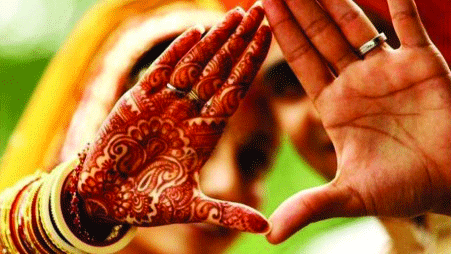Child marriage a barrier to achieve SDG goals
Industry Desk: Child marriage is a barrier to achieving the Sustainable Development Goals (SDG) and there is a need to raise collective awareness against it.
“Child marriage is involved with half of the [SDG] goals and acts as a barrier to achieving the goals. So, SDGs cannot be achieved without stopping child marriage,” said Professor Dr Mohammad Mainul Islam from the Department of Population Sciences at the University of Dhaka at a programme on sexual and reproductive health and rights on Saturday.
The Department of Population Sciences, Dhaka University, in collaboration with SNV Netherlands Development Organisation organised the 3rd National Conference on Sexual and Reproductive Health and Rights 2021 on 28-29 August.
As part of this conference and to engage with the country’s young population, the department is organising seven webinars on the topic for the different public and private university students. Almost 100 students from Jatiya Kabi Kazi Nazrul Islam University and Khulna University took part in the fifth webinar held on Saturday.
SDGs contain 17 goals set for the 2016-2030 period by the United Nationals for future international development. Dr Mainul said, quite often their education is stopped as a result of child marriage. They are deprived of opportunities for education and skill development. Unwanted pregnancies are caused by not having a good idea about sexual and reproductive health. Mothers and premature children suffer from malnutrition. There are also risks of high maternal mortality rate and risk of uterine cancer due to adolescent motherhood.
Highlighting a Bangladesh Demographic and Health Survey (BDHS), he further said, a significant portion of women aged 20-24 are married before age 18 in Bangladesh even though the minimum age for marriage for girls is 18 years and for boys, it is 21 years, but in special cases, marriage under the age of 18 is allowed subject to court permission in Bangladesh. In 1993-94, 73% of women between 20 and 24 years got married before they were 18, which declined to 69% in 1996-97, and 65% in 1999-20.
In 2014-15, the number dropped to 59% and there has been no significant development since the last BDHS conducted in 2017-18.
Highlighting the national action plan to prevent child marriage, Mainul said, although Bangladesh has achieved a lot in many sections, its progress in preventing child marriage is disappointing.
There is a commitment to eradicate child marriage under the age of 15 by 2021, to reduce the rate of child marriage among women aged 15 to 18 by one-third by 2021, and to completely eradicate child marriage by 2041. To achieve that goal, the evils of child marriage must be highlighted on a large scale, he added.
He further said it would be a big challenge for Bangladesh to prevent child marriage in the post-Covid-19 period.
While discussing menstrual health and hygiene management, Dr Nazneen Akhter, an Assistant Professor (Adjunct), Department of Public Health, North South University, said periods need to be discussed openly with family members. Usually, girls over 13 years have it every month and the government should produce sanitary napkins and supply those to grassroots levels. Napkin producing companies should receive incentives in this regard so that it is available to all at affordable prices.
Public Health Expert Dr Abu Jamil Faisal said the issue of sex and reproduction is so sensitive in the culture of Bangladesh that it is still taboo to discuss it openly. Everyone will have to come forward to break this. Besides, male members of a family also have to play a significant role in family planning.
Rare Israeli airstrike in Beirut kills Hezbollah commander and more than a dozen others
International Desk: Israel launched a rare airstrike that killed a senior Hezbollah milita…









